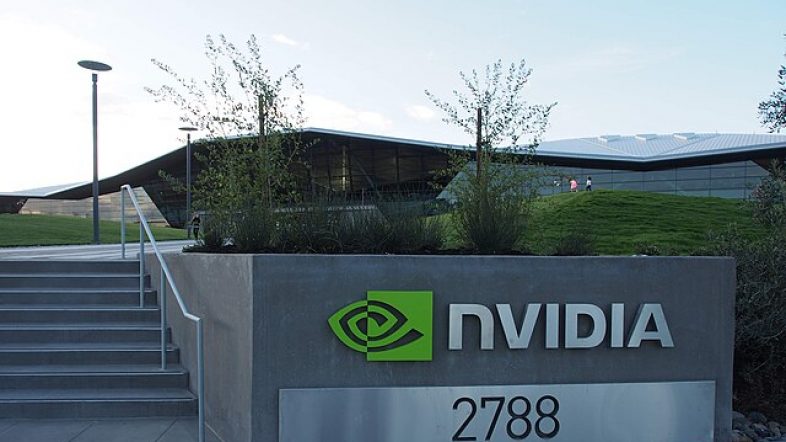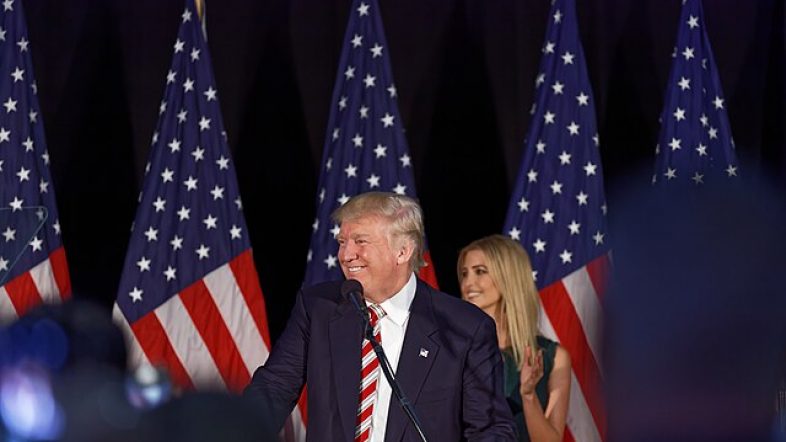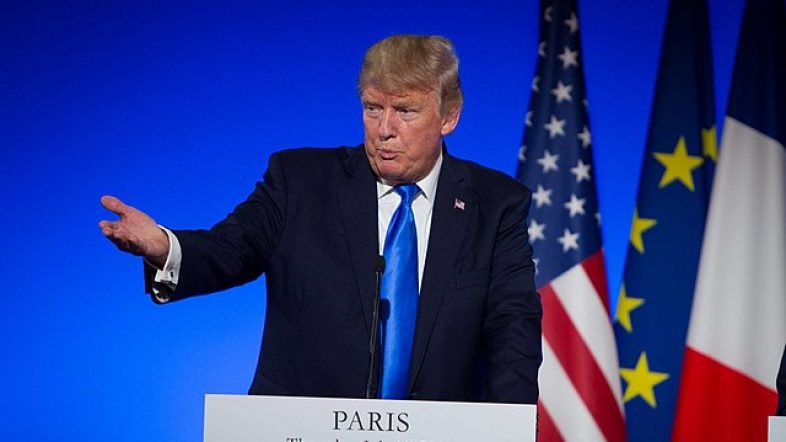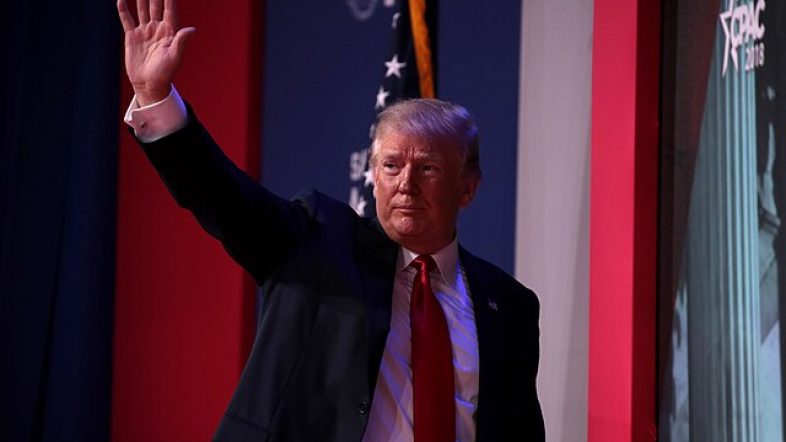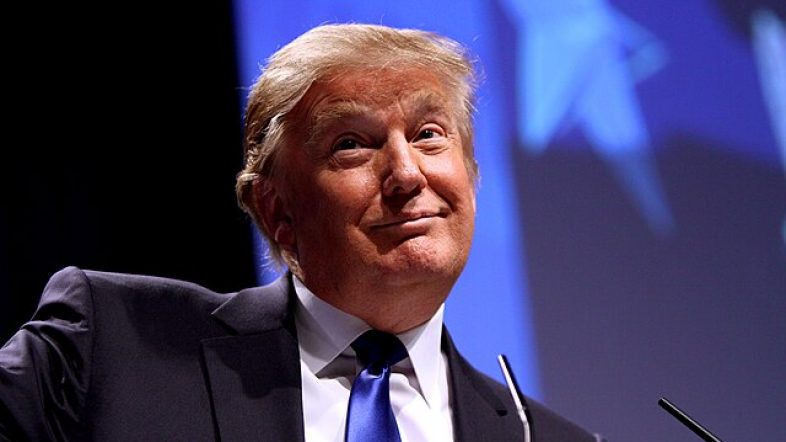American technology company Nvidia has shot up in value over the last several years following speculation about the potential economic impact of new computing technology that some investors believe could increase productivity substantially.
Nvidia posted huge year-end quarterly profits Tuesday evening, up 265% from a year prior as the company continues to grow at breakneck speeds, according to the company’s fourth quarter results. The fourth quarter gain beat expectations and led to a $277 billion stock rally on Wednesday, up 16.3% in just the day, making it the largest single-day increase in the New York Stock Exchange’s history, according to Reuters.
Investor hype around Nvidia is due to its stake in the semiconductor market, where it commands a vast majority of market share in artificial intelligence (AI) related technologies, experts told the Daily Caller News Foundation. Many investors predict that AI and greater computing efficiency will be a boon to businesses, which could greatly increase productivity using the technology for a wide array of applications.
“Nvidia has already made strides in increased efficiency, which is a tremendous advantage in this regard due to the sheer volume of calculations that must be performed to make a technology like AI possible,” E.J. Antoni, a research fellow at the Heritage Foundation’s Grover M. Hermann Center for the Federal Budget, told the DCNF. “With the ability to position data centers virtually anywhere, size is not really a major issue anymore for chips, but efficiency is due to increased energy prices and environmental regulations. Being on the cutting edge of chip technology puts a firm in a position to truly command the market.”
Nvidia was first founded in 1993, introducing products related to 3D graphics, particularly for gaming and multimedia creation, and later invented the graphics processing unit in 1999, taking a big step for computing power, according to the company’s website. The company also claims to have sparked the era of modern AI in 2012, way ahead of trends around the technology, giving it a commanding lead on other technology companies that are now looking to catch up and expand into AI.
“Nvidia controls most (about four-fifths) of the chip market for AI-related technologies,” Antoni told the DCNF. “The explosion of demand around AI has boosted chip demand too, leading to growth forecasts for Nvidia that were completely off the table just a couple years ago. Like all stock prices, no one can say for sure if Nvidia’s current popularity is warranted because stock prices are speculation on future earnings, and the future is by definition uncertain. This is particularly true for AI, where so much of the potential is unknown.”
Nvidia’s stock price has exploded over the past few years, measuring less than $40 a share at the start of 2019, peaking at over $310 a share in November 2021, before sliding to around $127 a share in October 2022, ultimately climbing all the way to around $800 a share in February 2024, according to MarketWatch.
“The fact that the demand for these products is growing indicates to me that our society, these companies, educational organizations, all the different users of AI believe that there is great value here that can improve our lives,” David Inserra, a fellow for free expression and technology at the Cato Institute, told the DCNF. “I can’t predict that it will certainly be that way. But every indicator that we have indicates that the market is saying there’s great value here. I think that we’d be foolish to ignore that important market indicator.”
Generative AI powered by the type of technology Nvidia is leading the way on is already finding several applications in business despite being in its infancy, including in customer service, cybersecurity, personal assistants, inventory management, accounting and more, according to Forbes. The U.S. is also looking to use semiconductor technology and AI in military applications and is trying to prevent China’s access to the equipment to maintain a technological and militaristic edge.
American companies controlled around 48% of the market share in the semiconductor market in 2022, compared to 7% in China, according to Statista. South Korea controlled the second-largest market share with 19%, followed by Japan and the European Union at 9%.
The Biden administration has placed a number of restrictions on the semiconductor industry to ensure continued American supremacy, including putting sanctions on several Chinese chip manufacturers in October 2022 to prevent them from working with American firms. Congress has also approved $39 billion in direct funding for chip manufacturers as part of the August 2022 Chip and Science Act.
The rollout of the funds has so far failed to bring a substantial number of chip manufacturing plants into operation, with several companies pushing back new plant completion dates to 2025 or later due to volatility in chip prices and government funding uncertainty.
The growth of generative AI powered by new chips has also led to concerns that the technology is being given a liberal skew, such as Google’s AI chatbot Gemini taking a nuanced position on the terrorist organization Hamas’ stance on the violent eradication of Israel and whether China is committing genocide against the Uyghur people.
Nvidia is part of what has been dubbed the Magnificent Seven Stocks, which are stocks that have delivered a large portion of stock growth in the past few years, according to Yahoo Finance. Tesla, an electric vehicle (EV) company, has had a similar meteoric rise starting slightly earlier but has since remained relatively stagnant in 2024 as other competitors in the EV field emerge, raising concerns that Nvidia might not live up to expectations.
“This is always the market dynamic, right? If someone comes along and delivers a more desirable product, well then yeah, sure,” Inserra told the DCNF about the potential for Nvidia to lose its current investor hype. “Right now we’re talking a lot about AI, but what if a new kind of AI, a better type or even more advanced, better type of technology emerges and uses different kinds of computing power? We don’t know what the future of innovation could bring. So to that extent, yeah, it’s possible that Nvidia isn’t going to be the golden child of this forever, but from what I’ve read, it seems like they have been forward-leaning and looking for ways to move into new spaces in the use of their processors for AI, and so right now they have that leg up.”
Nvidia declined to comment to the DCNF.
Will Kessler on February 25, 2024


